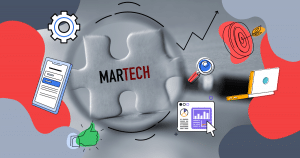As an agency, there are many different agency challenges that you will inevitably face.
You might struggle with things like getting quality talent, generating new business, or handling internal conflict.
But one thing you shouldn’t have to struggle with is effective project management and team collaboration.
Project management software helps you stay in control of your projects and tasks across your clients.
Enterprise project management software takes it one step further and ensures that every member of your team is connected to your tool.
With the right project management software in your toolbox, you can grow your business and meet your goals with ease.
In this article, we’ll help you understand what enterprise project management software really is and why it matters in your business.
We’ll also go through some of the top options available today, and help you understand what types of features and benefits you should look for in your software tool.
- What is Enterprise Project Management Software?
- What is the Role of an Enterprise Project Manager?
- How Do Project Managers Keep Track of Projects?
- Top 10 Project Management Software
- What is Enterprise Project Management Methodology?
- What are the Common Features of Enterprise Projects?
- Wrap Up
What is Enterprise Project Management Software?
Enterprise project management software is a type of program that allows enterprise organizations or agencies that work with enterprise organizations to run multiple complicated projects at the same time.
It can consolidate projects and give you and your team clear visibility across all your clients while tracking every aspect of the individual projects.
An enterprise project management software will help you keep on top of tasks, deadlines, and upcoming events that are relevant to your clients.
It should also provide portfolio management capabilities, reporting tools, time management tools, and resources to help you improve your project management strategies.
What is the Role of an Enterprise Project Manager?
If you are using enterprise project management software, it can be a significant help to have a key individual who is in control of the tool and manages the people who use it.
That’s where an enterprise project manager comes in.
The main role of the enterprise project manager is to make sure that projects are moving towards their goals and that the software being used to track these projects is optimized for success.
The enterprise project manager helps to prioritize tasks and goals across the multiple projects being run and makes sure that all teams are working together and are organized as they do their jobs.
The enterprise project manager might also work as a liaison between different teams on different projects. They help to bring them together when needed and make sure that there is enough force on each project to meet goals and achieve client satisfaction.
How Do Project Managers Keep Track of Projects?
Project managers and enterprise project managers work closely with the software tool that the company has chosen.
Project management software ensures that they don’t have to rely on manual methods of tracking projects, which often leads to errors, missed deadlines, unhappy clients, and unsatisfied teams.
By using enterprise project management software, you can ensure that teams have the tools they need to work together and deliver expected results.
Rather than trying to track down individuals and assign every task to a project, the software handles most of the work with automation, making it easier for project managers to manage teams at a high level.
Top 10 Project Management Software
Let’s dive into the top 10 enterprise project management software options available today, and help you determine which one might be the best fit for your business needs.
1. Studio
Studio by RockContent is a powerful enterprise project management tool that provides seamless collaboration across teams and departments, which increases communication between teams and ensures that activities are successful.
2. Monday.com
Monday.com provides a simple, intuitive layout for project management that eliminates the complications and confusion found in other tools.
It is also scalable and customizable to help meet client needs.
3. Smartsheet
As the name might suggest, Smartsheet uses a spreadsheet-style layout to support project management.
It helps you cut out the manual formula entry in typical spreadsheets and lets you customize and visualize projects with ease.
4. ClickUp
ClickUp provides a wide range of different project management tools, all with a focus on data encryption and protection. This tool ensures that data is compliant and secure, which is great for many industries.
5. Wrike
Wrike is a highly customizable and configurable project management tool that allows you to choose between a wide range of different visual tools in order to meet the needs of your team and achieve your goals.
6. Genius Project
Genius Project is a project management tool that focuses on project portfolio management.
It groups portfolios into hierarchies and helps you create a view that works best for your business, no matter the size or scope of the project.
7. Clarizen
Clarizen is a powerful tool that can be used to help boost collaboration between teams by providing real-time data analysis, advanced communication tools, and virtual spaces.
It’s a great tool for businesses focused on marketing.
8. ITM Platform
ITM Platform helps you manage the financial aspects of project management like controlling resources and costs, finding risks, and assigning resources to the right projects.
It also has many different integration options available.
9. Changepoint
Changepoint helps to connect your existing software tools together and create a project management schedule that adapts to your current methodologies.
It also provides detailed analytics and time management tools.
10. LiquidPlanner
If frequent change is common in your business, then LiquidPlanner is a great software choice.
It helps you quickly adapt to changes in priorities and can sync with real-time changes in order to keep things moving.
What is Enterprise Project Management Methodology?
Implementing enterprise project management software is a significant task.
It requires the entire organization to be fully equipped to use the new system.
However, enterprise project management can be combined with current management processes and methodologies.
It’s important to ensure that the projects and clients you choose fit into your overall business goals and that you have a clear plan in place.
Enterprise software should have the capabilities needed to map your current processes so that the entire organization is not disrupted.
No matter what your methodology is, enterprise software can help you achieve your goals and improve collaboration with ease.
What are the Common Features of Enterprise Projects?
There are a few features that make enterprise software and projects stand out from other project management tools.
Here are the elements that make up enterprise project management:
Risk Analysis
Enterprise management software should allow you to identify and manage any risks that might occur during the project with advanced risk analysis.
This allows you to take preventive and precautionary measures before the failure of a project ensues.
Project Estimation
Enterprise software should also be able to help you identify how long a project will take, what costs will go into it, and what resources are needed in order for the project to be completed.
This allows your enterprise project managers to accurately structure projects with clear estimates and life cycles for project completion.
Project Reviews
In addition to estimating projects, the enterprise project management software should also be able to help you review current projects and understand where they stand.
This helps you check on project progress, look for any new risks that might have emerged, and create a plan to address issues if a project isn’t progressing as estimated.
Project Management Coaching
Learning how to perform better in project management should be a goal for most organizations.
The right enterprise software tool will allow you to get coaching and training from the tool or from the tool’s provider in order to improve processes, project management tactics, decision-making skills, and more.
Escalated Issue Management
In an agency setting, there are always things in motion.
A project that wasn’t a priority yesterday might suddenly become a priority today, and things will need to be moved around.
Enterprise software should have the ability to adjust and develop new rules when a change in priority occurs.
Time Tracking
Tracking time is more than just knowing how long an employee worked on a project.
It helps you learn how long projects take to complete and what an accurate project lifecycle looks like.
This ensures that you plan better for the future and improve your planning, estimating, and pricing.
Information System
The final component of enterprise project management software is the information system that controls the software tool.
This information system helps provide detailed reports and helps to save time in planning and tracking the different elements of projects.
It allows you to gather important insights that will help you make better decisions as your business grows.
Wrap Up
Getting started as an agency can feel like navigating a minefield.
Thankfully, with the help of the right tools, resources, and software, you can get your entire team on the same page, increase cooperation and collaboration, and help focus your organization towards the same goals.
Enterprise project management software helps teams work together and makes running your business easier.
If you are interested in learning more about running effective programs and meeting client demands, check out our blog on project management tips. There you’ll learn essential tips for managing your time and delighting your clients.









